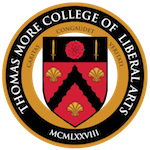Over the last four years, college campuses have been marked by walkouts, sit-ins, protests, violence, and—in the worst instances—riots. The reasons for the turmoil on campuses are many and varied, but for Dr. William Fahey, President of Thomas More College, one glaring feature is common: students and faculty are shockingly ignorant of American history.
“I have a long-standing interest in the American Revolution; I am working on a project about patriotism; I come from a family marked by generations of service,” Dr. Fahey reflected. “What I saw happening throughout America grieved me, but I wanted to respond in a positive way, and a way appropriate to our College’s life and mission.”
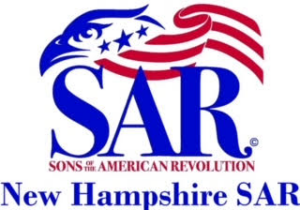 Dr. Fahey crafted a course that would combine the study of early American History and archival research on veterans of the War for American Independence. “I had recently been appointed Historian of the New Hampshire Chapter of the Sons of the American Revolution and had come across an appeal from the Director of the National Archives for volunteer archivists. With support from both organizations, I put together a fifteen-week course in which the students’ studies were complemented by archival research into the never-transcribed files of utterly unknown veterans. We concentrated on those men who had served in the New Hampshire militia or who were from New Hampshire and served in the new Continental Army under George Washington—the New Hampshire Line, as it was called.”
Dr. Fahey crafted a course that would combine the study of early American History and archival research on veterans of the War for American Independence. “I had recently been appointed Historian of the New Hampshire Chapter of the Sons of the American Revolution and had come across an appeal from the Director of the National Archives for volunteer archivists. With support from both organizations, I put together a fifteen-week course in which the students’ studies were complemented by archival research into the never-transcribed files of utterly unknown veterans. We concentrated on those men who had served in the New Hampshire militia or who were from New Hampshire and served in the new Continental Army under George Washington—the New Hampshire Line, as it was called.”
The course has won the attention of organizers of national celebrations and events. Dr. Fahey was an invited participant of the Heritage Foundation’s A250 Roundtable, which brought together political, cultural, and educational leaders from around the United States who are interested in seeing a proper celebration of the War of Independence and the establishment of the American Republic. Dr. Fahey hopes that over the semiquincentennial—with the help of the Sons of the American Revolution and other civic organizations—he and the College will be able to continue the critical study, celebration, and preservation of America’s early history.
Five students volunteered to take the course and to embrace the internship work with the National Archives: Molly Hugo ’25, Patrick Nagle ’25, Margaret Six ’25, Luke Stanger ’27, and John Watson ’27. Thanks to their work, there are now dozens and dozens of eighteenth-century documents and files from the War Department available for researchers and descendants.
The veterans studied by the TMC students included the following:
-
- Benjamin Wood Parker of Hollis, New Hampshire, who served in the Continental Army, was sent home due to illness, but re-enlisted to serve in the Continental Navy on the frigate The Hague.
- Moses Chandler of Concord, New Hampshire, who served and fought at Bunker Hill, the Siege of Boston, the Saratoga campaign, and participated in Sullivan’s expedition in New York.
- Josiah Goodhue of Brookfield, New Hampshire, who served in the Continental Army for only a few months at the war’s conclusion.
- John Dodge of an unknown origin in New Hampshire, who served in the New Hampshire Line of the Continental Army for three years. He was a participant in the Saratoga campaign, which led to the defeat and capture of General John Burgoyne’s forces in 1777—a victory that convinced France and Spain to enter the war.
- Israel Huckins (also Hawkins) of Madbury and Barrington, New Hampshire, who served in the New Hampshire Line during the war’s darkest times, from the summer of 1776, after Washington’s defeat, until 1777.
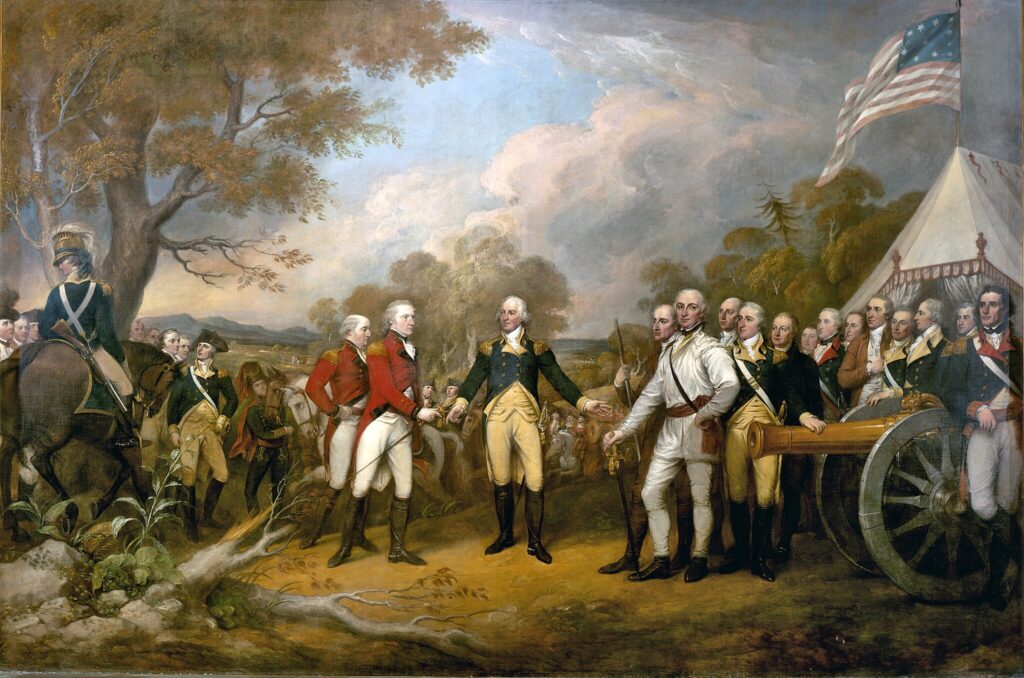
Several of the students carved time out of their schedule for a Veterans’ Day interview.

Why were you attracted to a tutorial on the American Revolution and archival work?
Molly: “I have a growing interest in historical preservation, be it archaeological or archival.”
Patrick: “I have a love for American History … but never had an opportunity to make a mature study of it.”
Margaret: “I was intrigued by the prospect of studying and deciphering actual documents from the period.”
Luke: “I have always loved history—with the American Revolution being one of my personal fascinations. Seeing the tutorial, I was instantly drawn to it. One of my major motivations was to be more active in the field of history, … to learn basic research skills while also learning more about the period.”
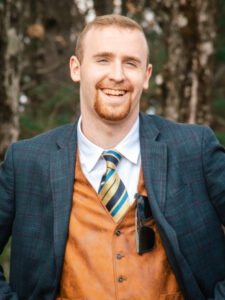
What was the strangest thing about your project working with material from the National Archives?
Molly: “Probably the discrepancies in the names. It led to curious adventures [of scouring other sources and documents].”
Patrick: “The handwriting … it’s so different from modern handwriting.”
Margaret: “The fact that I could never confirm that my patriot’s widow ever received the pension. The later pages in the soldier’s file were full of letters from the Justice of the Peace in charge of the case pleading with the pension office that there was in fact sufficient evidence that Goodhue actually served in the war, and affidavits from the veteran’s family swearing that they had no reason to doubt that he did serve in the war. There was nothing further to indicate whether the family had received anything … ”
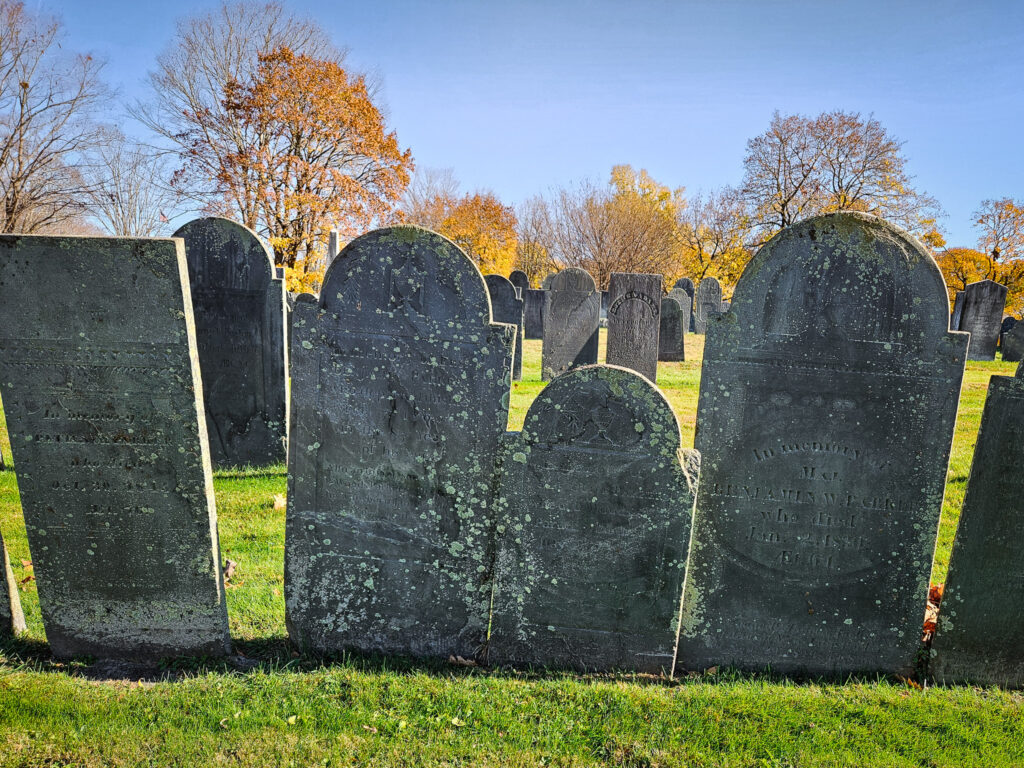
What was the most interesting thing?
Molly: “Locating the graves of the soldiers I worked on.”
Patrick: “That someone bothered to keep such careful records of a poor farmer’s war pension.”
Margaret: “The effort which the Justice of the Peace overseeing this case put into attempting to secure the pension for the widow. He was very emphatic that the evidence provided was sufficient, and that since everyone who had served with Goodhue was dead, no one could give first-hand testimony that he had in fact served in the war. In the later pages, he says that Mrs. Goodhue was “well nigh ‘crazy’ over the ‘ingratitude of the Republic,’” because of the difficulty in the application process. The Justice’s personality seemed to be hidden in his letters, and I was intrigued by his determination.
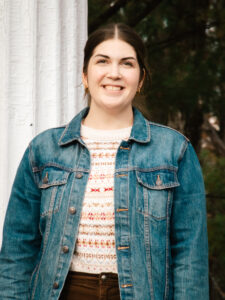
Does this course and work have any positive impact on your future career, work, or thinking?
Molly: “The course fueled my interest to look for further opportunities to work on archival material—either as a career or hobby.”
Patrick: “This course definitely helped to make me a more disciplined student. I would like to live in New Hampshire for the rest of my life, and this course has helped me grow in my knowledge and love for the place I live in. The high praise of New Hampshire’s Third Regiment in the works we read was a source of pride for me.”
Margaret: “To see that in the study of history, it is important to consider not just the events as we know them, but also the social and philosophical context, as well as personal accounts. Any historical source is bound to have its particular bias, and so it is important to obtain a view of the whole by considering several different aspects and angles.”
Luke: “I started writing more by hand, and learned valuable and practical research skills.”

The 250th anniversary of the American Revolution is upon us. Did this course encourage you to think about our country’s history differently?
Molly: “The course definitely fueled my interest to look deeper into the country’s history, into aspects of it that I’m more ignorant of. This course opened my eyes to the difficulty that the veterans had in getting their pensions. The difficulty was something I had assumed would have been the case, but I didn’t know the full extent of it, with some soldiers giving false accounts and others impersonating soldiers—and of course, widows trying to obtain their husbands’ pensions.”
Patrick: “I believe it gave me a much more nuanced understanding of the Revolution—it was more complicated than we are often told.”
Margaret: “This course helped me to understand that the ordinary man’s perspective of the war was very different from how the Founding Fathers saw it. For these soldiers of New Hampshire, it was a personal affair, not an ideological battle. The Americans wanted to live as they had been, and had no concern for political issues.”
Luke: “Through reading the veteran’s documents, I was able to see a far more personal view of the history. The archival research complemented Russell Kirk’s work that we read, which blew me away with the philosophical and political side of the founding. The course allowed me to reflect on the fact that, for each Hamilton and Washington, there are thousands of John Dodges. These are men who are mostly forgotten by history, men who in the grand scheme of things achieved little, yet still without those men there could have never been the Hamiltons or Washingtons.”

Patriotism and natural piety seem to be things on the decline, especially among young Americans. Did your archival work and class studies challenge or change your views in any way?
Molly: “The course fueled my patriotism. So much was sacrificed on the battlefields and at home for the country we possess today. Other young Americans need a wake-up call so that they can understand the necessity for having a right sense of patriotism, so that we can preserve the country as being a ‘nation under God.’”
Patrick: “I liked to believe I had patriotism before, but when researching Moses Chandler, I saw a New Hampshire ‘nobody’ who was willing to fight an empire for the sake of his home. Moses Chandler is a patriot. I never fought for my home. I lack the virtue of that simple New Hampshire farmer. I appreciate the virtue of the brave persons who loved my home so much they fought—and some even died—for it. This course made me appreciate the virtue of those who came before me a little bit more than I did before.”
Margaret: “The class readings helped me to see that many people fought for independence because they were loyal to their people and their land. They saw the British parliament as a foreign power which sought to exert control over the Americans’ native communities. The colonists saw their fight as a battle for their own land. They lived there, they worked the land, and they wanted to protect their livelihood, because it belonged to them. There was no formal American nation yet, but the colonists had a strong sense of identity that was separate from their British rulers.
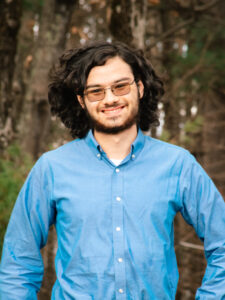
What reading or assignment was most interesting and why?
Molly: “Joseph Plumb Martin’s A Narrative of a Revolutionary Soldier. Fascinating.”
Patrick: “Some of the essays originally given as speeches at conventions of the original Sons of the American Revolution. I felt that poor little New Hampshire was vindicated in their praise.”
Margaret: “The most interesting assignment for me was the Narrative of a Revolutionary Soldier. I was captivated by the vivid memories that the author was able to conjure up and describe, and was horrified by the terrible conditions that the poor, young, and under-equipped soldiers had to suffer. It seemed like the daily struggle for the average soldier was to find food, water, and shelter. Disease was very common, and many died not from battle, but from the harsh lives they were forced to live. The narrator details just how awful life was in the army, and then turns around and enlists again! I was amazed by the intrepid spirit of the ordinary soldier to face the worst material hardship for the sake of their country.”
Luke: “Definitely Russell Kirk’s The Roots of American Order. The way he tied the Founding into moments from the past and the broader history of ideas put American history into a new perspective for me.”
These comments have been edited for length and clarity.
For further reading:
